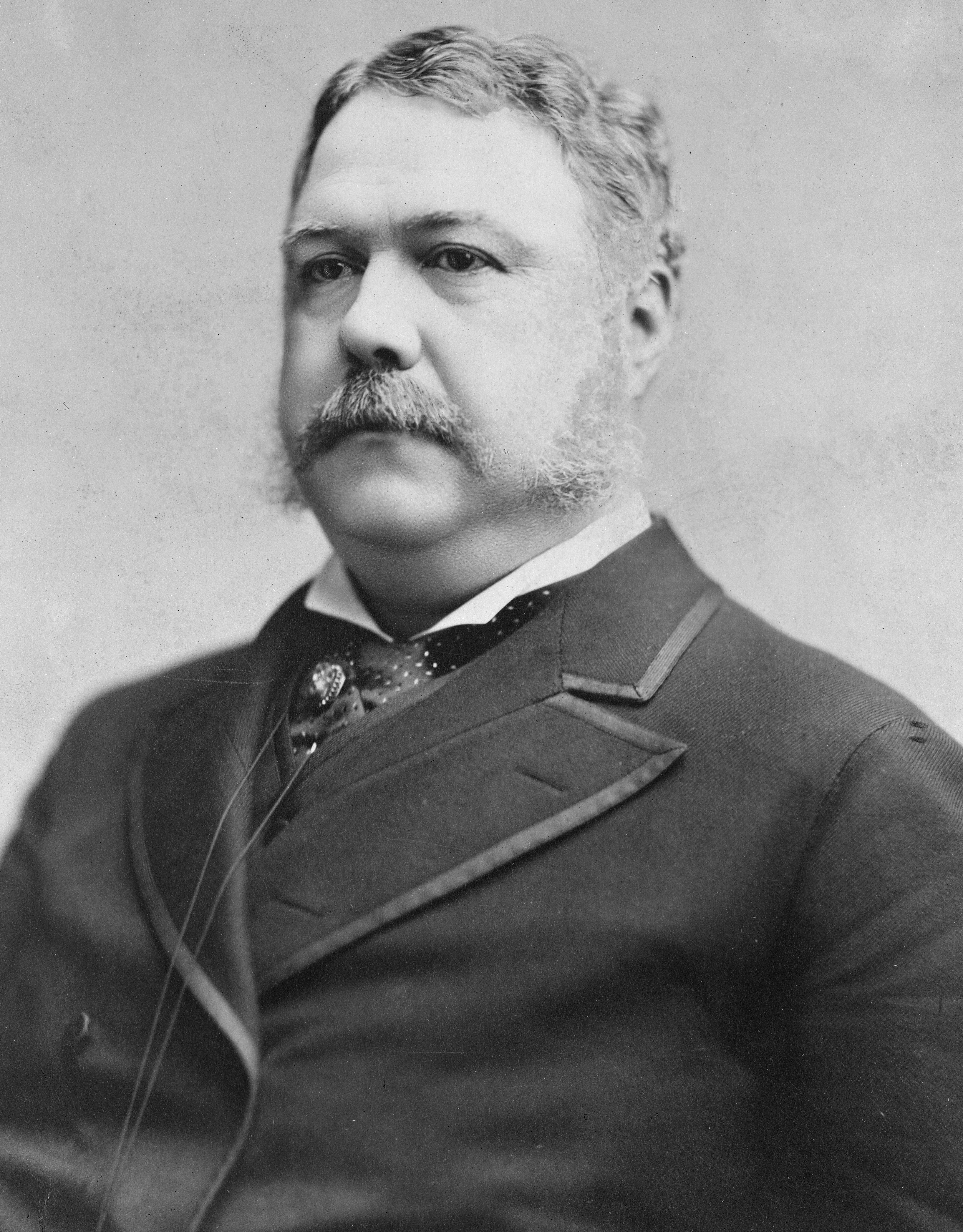Chester A. Arthur
 Chester Alan Arthur (October 5, 1829 but biographer Thomas C. Reeves confirms that this is incorrect: Arthur claimed to be a year younger "out of simple vanity".}} – November 18, 1886) was an American politician who served as the 21st president of the United States from 1881 to 1885. He was a Republican lawyer from New York who briefly served as the 20th vice president under President James A. Garfield. Arthur assumed the presidency after Garfield's death on September 19, 1881, and served the remainder of his term until March 4, 1885.
Chester Alan Arthur (October 5, 1829 but biographer Thomas C. Reeves confirms that this is incorrect: Arthur claimed to be a year younger "out of simple vanity".}} – November 18, 1886) was an American politician who served as the 21st president of the United States from 1881 to 1885. He was a Republican lawyer from New York who briefly served as the 20th vice president under President James A. Garfield. Arthur assumed the presidency after Garfield's death on September 19, 1881, and served the remainder of his term until March 4, 1885.Arthur was born in Fairfield, Vermont, grew up in upstate New York and practiced law in New York City. He served as quartermaster general of the New York Militia during the American Civil War. Following the war, he devoted more time to New York Republican politics and quickly rose in Senator Roscoe Conkling's political organization. President Ulysses S. Grant appointed him as Collector of the Port of New York in 1871, and he was an important supporter of Conkling and the Stalwart faction of the Republican Party. In 1878, following bitter disputes between Conkling and President Rutherford B. Hayes over control of patronage in New York, Hayes fired Arthur as part of a plan to reform the federal patronage system. In June 1880, the extended contest between Grant, identified with the Stalwarts, and James G. Blaine, the candidate of the Half-Breed faction, led to the compromise selection of Ohio's Garfield for president. Republicans then nominated Arthur for vice president to balance the ticket geographically and to placate Stalwarts disappointed by Grant's defeat. Garfield and Arthur won the 1880 presidential election and took office in March 1881. Four months into his term, Garfield was shot by an assassin; he died 11 weeks later, and Arthur assumed the presidency.
As president, Arthur presided over the rebirth of the U.S. Navy, but he was criticized for failing to alleviate the federal budget surplus which had been accumulating since the end of the Civil War. Arthur vetoed the first version of the 1882 Chinese Exclusion Act, arguing that its twenty-year ban on Chinese immigrants to the United States violated the Burlingame Treaty, but he signed a second version, which included a ten-year ban. He appointed Horace Gray and Samuel Blatchford to the Supreme Court. He also enforced the Immigration Act of 1882 to impose more restrictions on immigrants and the Tariff of 1883 to attempt to reduce tariffs. Arthur signed into law the Pendleton Civil Service Reform Act of 1883, which came as a surprise to reformers who held a negative reputation of Arthur as a Stalwart and product of Conkling's organization.
Suffering from poor health, Arthur made only a limited effort to secure the Republican Party's nomination in 1884, and he retired at the end of his term. Arthur's failing health and political temperament combined to make his administration less active than a modern presidency, yet he earned praise among contemporaries for his solid performance in office. Journalist Alexander McClure wrote, "No man ever entered the Presidency so profoundly and widely distrusted as Chester Alan Arthur, and no one ever retired ... more generally respected, alike by political friend and foe." The ''New York World'' summed up Arthur's presidency at his death in 1886: "No duty was neglected in his administration, and no adventurous project alarmed the nation." Mark Twain wrote of him, "It would be hard indeed to better President Arthur's administration." Evaluations by modern historians generally rank Arthur as a mediocre or average president. Arthur has also been described as one of the least memorable presidents. Provided by Wikipedia


